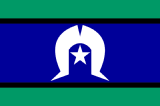The FCAV is pleased to present the findings from the 2024 carer census survey and Census Report including themes arising from carers open-ended responses. Thank you to every member who took the time to participate by completing the survey. Over 750 respondents participated in the census. This excellent response rate allows us to better understand and advocate to address the unique challenges and requirements of foster carers in Victoria.
As we navigate the complexities of providing care for children in Victoria, the insights gained from this census will inform both FCAV service delivery and advocacy. This includes advice on improvements to the services, resources and respect that carers can expect to be provided within the home-based care system.
Along with demographic data about the diverse pool of carers in Victoria, the census also provides attitudinal data, informing relational and wellbeing aspects of the carer experience within the home-based care services of their agency, the Department and Child Protection.
Carer’s social and economic participation is high with 83% of carers having an educational qualification including bachelor degree (26%), post graduate degree (24%) or diploma (33%). The majority of carers are working with 69% of carers employed. Of those, 35% are earning over $120,000 per year and another 36% are earning $60,000 to $120,000 per year. Carers score highly on life satisfaction index of 79%.
86% of respondents report positive change and growth in the child/ young person as the most rewarding aspect of their role as a foster carer with contributing to the community also a significant reward.
Stand out data shows that, along with the complexities of caring for children and young people, financial supports such as inadequate care allowance and inadequate funding for child/young person's expenses, are the most challenging aspect of the role, regardless of the carer’s household income. Inclusion and respect within care teams features as one of the three most challenging aspects of providing care.
35% of carers are sole carers and of those, 90% are women. 62% of respondents identify having a child or young person with a physical or intellectual disability or impairment. Of note, 16% of respondents intend to leave or are unsure of continuing to care and carers who had been caring for a year or longer reported having a greater change in motivation to continue providing care.
Over 95% of respondents find each of FCAV’s carer services, support and information somewhat useful to extremely useful. Over 85% strongly agree that FCAV provides practical information and support and would recommend the FCAV as a resource for other foster carers. 63% of current carers are interested in accessing FCAV online learning and development opportunities and nearly half of all current carer respondents would like to access peer connection opportunities in the coming year.
Thank you for your participation in the Census, providing the evidence base for carer needs and experience in Victoria. Our thanks to Orima Research for conducting the fieldwork, analysis, and reporting to complete this Census. The FCAV looks forward to conveying further analysis and response to the data from the census in the coming weeks.


